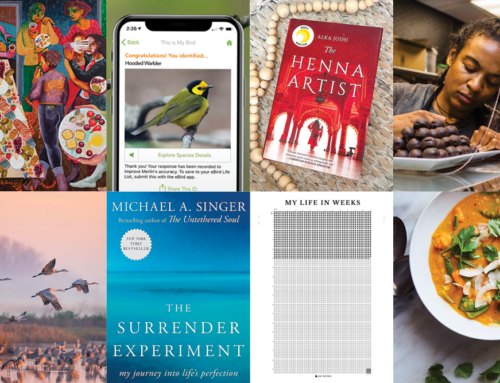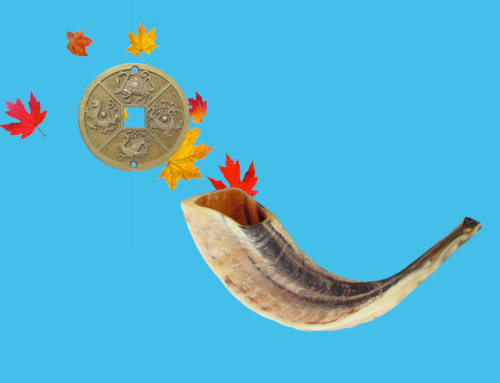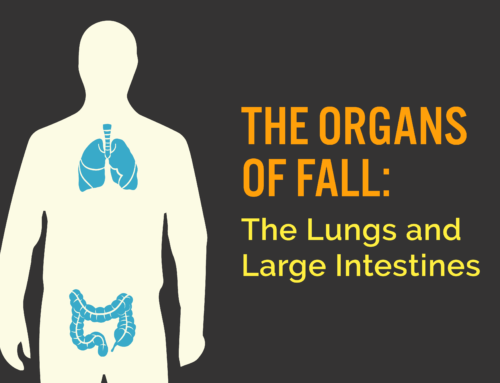Over 2,000 years ago, The Yellow Emperor’s Classic of Medicine was written by Huang Di (the Yellow Emperor), who reigned around 300 BC and is considered to be the highest authority on Traditional Chinese Medicine (TCM). This body of knowledge was, and continues to be, an essential primary for any TCM practitioner. Based in Taoist philosophy, this classical text recognizes that the body follows certain natural rules – that health and disease are influenced by one’s environment which includes seasonal, political and societal factors. For example, Huang Di writes,
In the three months of summer there is an abundance of sunshine and rain. The heavenly energy descends, and the earthly energy rises. When these energies merge, there is intercourse between heaven and earth. As a result, plants mature and animals, flowers, and fruit appear abundantly.
One may retire somewhat later at this time of year, while still arising early. One should refrain from anger and stay physically active, to prevent the pores from closing and the chi from stagnating. Emotionally it is important to be happy and easygoing and not hold on to grudges, so that the energy can flow freely.
Summer is typically a time for play and relaxation. This summer, we have all been presented instead with significant challenges and many unknowns, individually and at-large. Despite our generation’s unique challenge and revolutionary work, the laws of nature and simple guidance below still stand true.
Just breathe. No matter where you are or what is happening, you always have access to your breath. Think of intentional breathing as a built-in relaxation program, hardwired into the system. Try “calming the breath” at least once a day:
- Exhale completely, then close your mouth and inhale through your nose to a count of five. As you breathe in, imagine that pure, clean air is entering your lungs.
- Hold your breath for the count of twenty, imagining that your cells are using this opportunity to empty their waste products into the bloodstream.
- Exhale to ten counts, visualizing the waste products exiting from your body.
Engage your senses. As summer brings with it a myriad of intense colors, sounds, and fragrances, make yourself available to the abundance all around you.
- Go outside in the grass barefooted and feel the textures that greet your feet.
- Go into the garden and listen intently to the sounds of the birds and crickets, or of children playing.
- Smell the flowers, the smells of summer, and take time to allow them in.
- Taste the fresh fruits and vegetables, and linger over their unique flavors.
Trust your intuition. The heart rules understanding and intelligence, but not of the cerebral type. When we know something in our heart, we are connected to a deeper part of our being. Try to engage in this deeper knowing, and take the time to listen to your inner voice.
Eat cooling foods, and eat slowly. Enjoy the flavors of the vegetables and fruits in their season. The taste associated with Fire is bitter, so try to include bitter greens like endive, escarole, spinach, kale, and Swiss chard in your diet.
Drink lots of pure, fresh water. The sun pulls the moisture from your pores, so it is important that you rehydrate. Drink eight to ten 8-oz glasses of water a day. If you don’t feel thirsty, force yourself to drink it anyway; most likely, even if you force yourself, your body will give a sigh of relief, thanking you.
Exercise. A healthy heart needs regular exercise to keep the circulatory system in good condition. Get a good cardiovascular exercise and try to build a sweat, which helps to cleanse toxins from the body. Depending on your level of fitness, make your workout fit in. If you are out of shape, begin slowly by walking daily. Try to walk fast enough to just break a bit of a sweat, but don’t overdo it. The heart is more vulnerable in the summer, so build your exercise routine gradually.
*The Yellow Emperor’s Classic of Internal Medicine. Veith I, trans. Berkeley and Los Angeles, CA: University of California Press; 2002.




